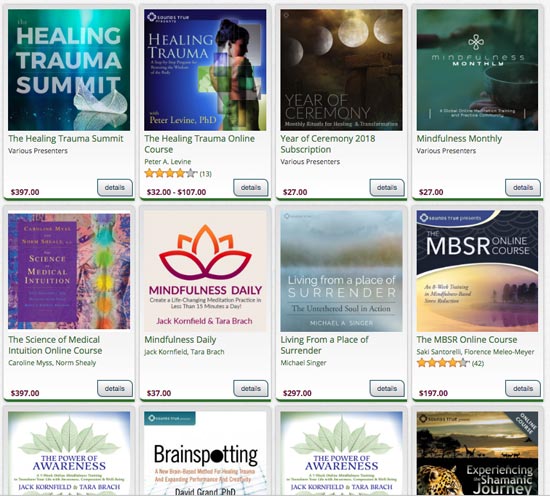Many of us have developed a smartphone addiction, and it isn't necessarily our fault. The epitome of a ‘first world problem' perhaps, but a serious one all the same.
Technology is pervasive in that it has infiltrated every aspect of our lives, becoming a technological umbilical cord, an essential link between us and the digital world that we cannot seem to cut.
Though technology offers myriad benefits to those who use it, it also generates unrealistic and often exhausting standards for those who use digital devices in today’s workforce.
This wasn’t the purpose of technology, at least according to renowned economist John Maynard Keynes, who believed that industrialization and technology would eventually make leisure time more valuable. He predicted that we would only work about 15 hours a week as a result.
To most, this seems laughable.
The Digital Drive That Never Ends
Technology’s role in our work culture and general society is a driving one. We live in a time where ready availability is the first step towards advancement. Instead of technology working for us, we work doubly hard because of technology.
One could even argue that technology is making our lives harder, not easier.
Have any doubts? Technology has reinforced that we live in an instant-reply culture: Facebook, Twitter, emails, etc… Business hours seem not to exist anymore- with email or chat apps, colleagues or bosses are merely a ping away and recipients are expected to reply immediately, no matter the time or day.
As a result, weekly work hours skyrocket and some lose the balance between work and life, noticing that lines between the two rapidly blur as work obligations start to overtake personal and family time.
The hyper-vigilance associated with technology and the influx of information is also creating a new generation of tech addicts- those who are so obsessed with their glowing screens that they resist turning them off at mealtime and bedtime. As more and more people plug in, they get less and less sleep, peace of mind and wellness.
How the “Switched On” Culture Is Ruining Your Health
Ever joked that you’ve gotten carpal tunnel after a particularly feisty text message exchange with a friend? Ever felt your eyes tire after hours browsing the internet?
The tangible effects of technology consumption on the body are real and increasingly scary.
Studies have shown that the eyes, in particular, have suffered most from an increase in technology use. Those who spend hours pouring over the computer or smartphone screen are increasingly prone to eyesight damage.
Studies show that young European adults aged 25-29 are increasingly plagued by myopia- or short sightedness as a result of their unrestricted digital consumption, which now totals about 27 and a half hours a week in the UK.
The Independent reported that those who attended university were much more likely to suffer from myopia, prompting researchers to direct the blame at strenuous computer work like reading and writing, as well as a decrease in natural light and ‘outdoor activity.’
It can be no surprise that eye problems abound when people stare for hours on end at their phones. Studies claim that phones can be worse for our eyes than we’ve ever thought.
Reports published in BMC Opthalmology point to an increase in dry eye disease as a result of phone use. Think it doesn’t sound that serious?
Dry eye disease is characterized by an inability of the eyes to produce tears. As a result, the eyes become inflamed, irritated and red. Though these symptoms are typically seen in older adults, there is an increase in children suffering from dry eye disease as a result of their voracious use of digital technology, like smartphones and iPads.
Poor Sleep Hygiene
Along with eye problems and decreases in vision, the use of digital technology affects our sleep patterns, making sleep more and more evasive.
Dr. Gregory Marcus of UC San Francisco attests that smartphone use around bedtime is “associated with a longer time to fall asleep and worse sleep quality during the night.”
Marcus decided to conduct a study that linked smartphone use and sleep: the results of which were disheartening.
He found that, on average, people used their smartphones for almost 40 hours a month. He also determined that those who used at their smartphone more frequently were more likely to sleep less and have decreased quality of sleep, increasing their risk of depression, heart disease, obesity and even diabetes.
When Does the Work Day End?
Technology, no matter how helpful, also deepens ties to offices, placing employees on call nearly 24/7.
But what happens when the boundaries between work life and home life are significantly blurred?
Simply put, people become more stressed. Physiologically, this is reflected by an increase in cortisol levels (cortisol is the hormone released in situations of stress).
Sometimes, a healthy dose of stress can make us productive, but an abundance of it or a continual flow of cortisol can be extremely detrimental to health and wellness.
Increases in cortisol are often linked to an increase in belly fat and serious cardiovascular issues that include high blood pressure, obesity, hyperglycemia and insulin resistance.
This increase in cortisol has simple implications for our happiness levels, as well. Releasing too much of this hormone can lead to lower levels of serotonin, the hormone responsible for a feeling of wellbeing and happiness. When we’re overloaded with the stress hormone, it’s harder for us to feel happy, satisfied and healthy.
How You Can Take Back Control
It’s easy to champion the digital age- the advances in technology have the power to seriously improve the quality of our lives. However, the digital age’s effect on happiness, health and self esteem cannot be understated.
Unrealistic standards from colleagues, friends and bosses both necessitate and justify a borderline-obsessive connection to digital devices in order to work long hours or stay in communication.
However, the truth of the matter is that responding to emails in the middle of the night, logging 12+ hours a day on the laptop and never turning the smartphone off is increasingly unhealthy behavior.
As a culture, we are slowly beginning to devalue wellness and prioritize productivity at the expense of our health. This creates an unhealthy reliance on digital devices, which is readily apparent as everywhere you go, people are surfing the internet, emailing a colleague, talking to a friend or checking social media on their smartphones.
As a result, we are rarely present, always trying to stay one step ahead at work or worrying about whether or not someone’s received our latest email.
So, for the sake of health and sanity, here are 12 easy steps that will help you take a step back from your digital devices:
Step 1: Email Lock Down
Unable to relax because of the constant stream of incoming work emails? Decide on an email cut off time, say 7 pm. Check your messages one last time and send out any last minute responses or requests. Anything else can wait until the morning.
Step 2. Turn Your Phone Off
Obsessive phone checker? Try to wean yourself off of late night phone checks by setting a time when the phone goes off. It can be intimidating at first, but soon it’ll be second nature.
Step 3. Create a Wifi-Free Zone
It can be so tempting to log onto Facebook to see what all of your friends are up to after work or school, but chances are an innocent check will take you down the internet rabbit hole. Before you know it, it’s 3 am. Turning off wifi at a set time will ensure that you’re off to bed when you should.
Step 4. Adjust Your TV Routine
Watching TV late at night can make it harder to sleep and decompress. Trying to relax after watching the nightly news is difficult as well, as studies have shown that intense news can negatively affect your emotional state before sleep.
Step 5. Change Your Nightly Ritual
Instead of scrolling through Instagram or responding to emails before bed, read a book instead! Chances are it’ll help you get to sleep more easily and you’ll complete your reading list faster- a total win win!
Step 6. Try a Flip Phone Flashback
Finding yourself constantly distracted by your phone at social events? Get a cheap flip phone that allows you to make emergency phone calls or texts and leave the smartphone at home.
Step 7. Get a Healthier Work Life Balance
If you’re serious about unplugging at home, be sure to let your colleagues and bosses know that you won’t respond to emails after a determined time, say 7 pm. This will allow you to relax at home while setting a standard for business hours.
Step 8. Turn off Notifications
There’s something about the ding of a notification that has a Pavlovian effect: it makes me, for one, stressed. Combat this by turning notifications and alerts to OFF. You can check them at your own leisure.
Step 9. Digital Detox
Every month, take a weekend where you complete a digital detox, if possible. Try to avoid your smartphone, laptop and tv and enjoy some quality time with friends and family, or just take some time to rejuvenate alone!
Step 10. Plan Breaks: If a large part of your work centers around staring at a computer, plan hourly breaks for yourself where you can walk around, stretch and give your eyes a rest. It’ll break up the monotony and work to rebalance you!
Step 11. There’s an App for That!
Most people would be shocked at how much time they spend on their phones or other devices. Figure out how many hours a day you spend (waste?) on your phone by installing an app like Moment or BreakFree that will help you face the reality of your internet use. Maybe then, powering down won’t seem so bad!
Step 12. Meditate
Feeling stressed by an influx of emails, messages and notifications? Put away your devices and spend 10 minutes in quiet meditation. Hello, relaxation!
It can be difficult to commit to a ‘digital diet,’ but learning to set limits with technology will not only make you happier, but healthier.





Leave a Reply